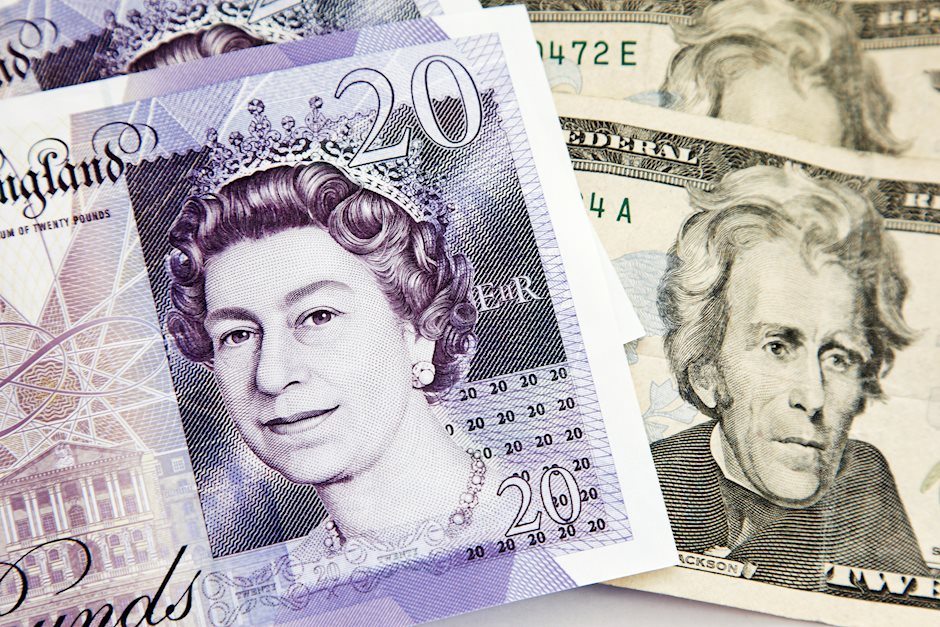GBP/USD climbs to multi-day peak, beyond mid-1.2700s amid modest USD downtick
- GBP/USD scales higher for the second straight day amid the emergence of some USD selling.
- Dovish Fed expectations, sliding US bond yields and the risk-on impulse undermines the USD.
- Bets for two more BoE rate cuts in 2024 and the ongoing riots in the UK might cap the upside.

The GBP/USD pair is seen building on the previous day's goodish rebound from the 1.2665 area, or a five-week low and gaining some follow-through positive traction for the second successive day on Thursday. The momentum lifts spot prices back above the mid-1.2700s during the Asian session and is sponsored by a modest US Dollar (USD) downtick.
As investors look past Thursday's upbeat US labor market report, the USD Index (DXY), which tracks the Greenback against a basket of currencies, retreats further from the weekly high touched on Thursday and acts as a tailwind for the GBP/USD pair. In fact, the US Department of Labor (DoL) reported that there were 233K initial jobless claims in the week ending August 3 as compared to expectations for a 240K print and 249K in the previous week. The upbeat reading eased concerns about an economic downturn in the world's largest economy, though dovish Federal Reserve (Fed) expectations continue to undermine demand for the buck.
The markets have fully priced in a 25-basis points rate cut by the Federal Reserve in September and have been speculating on the possibility of a 50-bps rate cut. This, in turn, triggers a fresh leg down in the US Treasury bond yields, which, along with a positive risk tone, exerts some downward pressure on the safe-haven Greenback. Any meaningful appreciating move for the GBP/USD pair, however, seems elusive in the wake of rising bets for two more interest rate cuts by the Bank of England (BoE) in 2024. This, along with the ongoing riots in the UK, should hold back traders from placing aggressive bullish bets around the British Pound (GBP).
There isn't any relevant market-moving economic data due for release on Friday, either from the UK or the US, leaving the GBP/USD pair at the mercy of the USD price dynamics. Nevertheless, spot prices remain on track to register modest losses for the fourth straight week. The focus now shifts to the release of the UK monthly jobs data, due next Tuesday, which will be followed by the latest consumer inflation figures from the UK and the US on Wednesday. Apart from this, the monthly UK GDP print on Thursday should help in determining the next leg of a directional move for the currency pair.
BoE FAQs
The Bank of England (BoE) decides monetary policy for the United Kingdom. Its primary goal is to achieve ‘price stability’, or a steady inflation rate of 2%. Its tool for achieving this is via the adjustment of base lending rates. The BoE sets the rate at which it lends to commercial banks and banks lend to each other, determining the level of interest rates in the economy overall. This also impacts the value of the Pound Sterling (GBP).
When inflation is above the Bank of England’s target it responds by raising interest rates, making it more expensive for people and businesses to access credit. This is positive for the Pound Sterling because higher interest rates make the UK a more attractive place for global investors to park their money. When inflation falls below target, it is a sign economic growth is slowing, and the BoE will consider lowering interest rates to cheapen credit in the hope businesses will borrow to invest in growth-generating projects – a negative for the Pound Sterling.
In extreme situations, the Bank of England can enact a policy called Quantitative Easing (QE). QE is the process by which the BoE substantially increases the flow of credit in a stuck financial system. QE is a last resort policy when lowering interest rates will not achieve the necessary result. The process of QE involves the BoE printing money to buy assets – usually government or AAA-rated corporate bonds – from banks and other financial institutions. QE usually results in a weaker Pound Sterling.
Quantitative tightening (QT) is the reverse of QE, enacted when the economy is strengthening and inflation starts rising. Whilst in QE the Bank of England (BoE) purchases government and corporate bonds from financial institutions to encourage them to lend; in QT, the BoE stops buying more bonds, and stops reinvesting the principal maturing on the bonds it already holds. It is usually positive for the Pound Sterling.
Author

Haresh Menghani
FXStreet
Haresh Menghani is a detail-oriented professional with 10+ years of extensive experience in analysing the global financial markets.

















